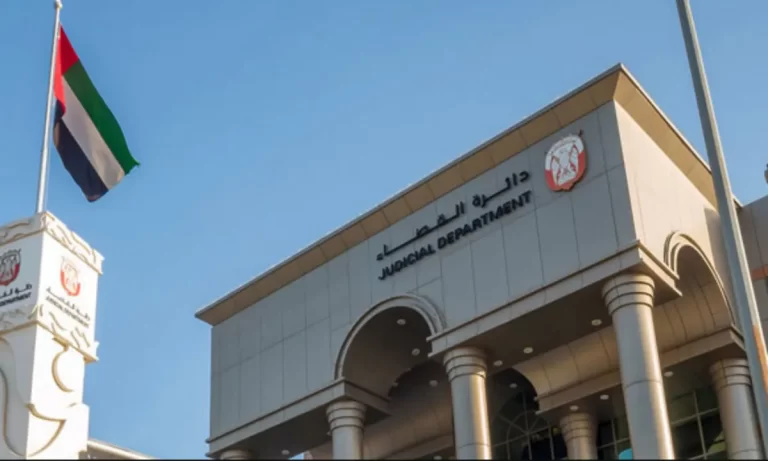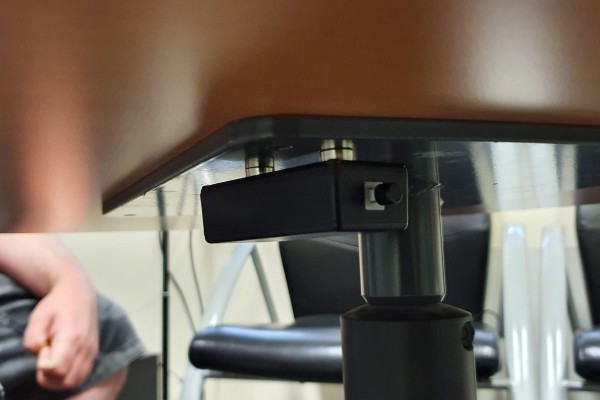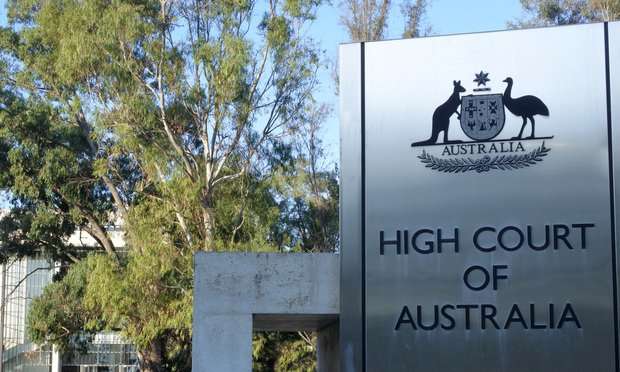It is possible to prove voice recording as evidence in court in the UAE if it is related to a serious criminal and credible enough to support your evidence.
But the court will consider how you obtain the voice recording & and checking party consent depend on your state as well.
In this article we will provide you the examples of legal & illegal recording and basic laws you need to know before recording.
Contents
Voice Recording Laws & consent by State to use in court in uAE
Does Court in UAE Accept Voice Recording as a supporting evidence ?
Is it an illegal offense to record a conversation without consent ?
how to record conversation legally and able to use in court in uAE
Explore our solutions to prove voice recording in UAE court legally
Voice Recording Laws & consent by State to use in court in uAE

According to the Article 378 of Federal Law Number 3 of 1987 (the “Penal Code”), It is completely illegal if you record the conversation or video without obtaining permission by placing the listening device or audio recorder in the private area.
So, to use voice recording in the UAE you may have to obtain the consent from your participants before starting recording.
But If the voice recording can be used as evidence in the court, it depends on the conversation, the party’s statement and how you obtain the evidence as well.
can voice recording be used as evidence in court in uAE ?
Voice recorder is able to be used in the court if it is admissible by the local court, it may be accepted by law enforcement for supporting evidence of a crime as long as it is established as credible and admissible by the court.
Normally, recording a conversation without the permission of the other person is illegal unless they are relevant to the underlying issues of law and whether the voice identification identifies the person.
Does Court in UAE Accept Voice Recording as a supporting evidence ?
According to certain circumstances, a voice recorder is usable as a supportive evidence tool in court.
Any voice whose identification cannot be verified will be rejected.
If the content can be used as evidence in the court, it depends on the conversation and the party’s statement.
If it is evidence of a crime, the court or the relevant authorities may accept it.
Notes : It also depends on how you obtain the recording, if it is obtained by illegal recording, the court will reject and you are going to face legal punishment too.
Activities of illegal recording actions :
1. Place the listening devices in other private spaces such as the house, bedroom, bathroom, private office, changing room, attorney room and more.
2. Secretly record when you are not involved in the conversation
3. Record without consent especially in the two consent states
Is it an illegal offense to record a conversation without consent ?
According to the Federal Wiretap Act, a person shall be punished by detention and fine if he/she invades the privacy of the individual or family life any of the following acts without the consent of the victim : to eavesdrop, record, or transmit by any device of any kind whatsoever.
For example, if you are placing voice recorders or other listening devices in other property that not own by you, this action is completely illegal and conflict with the laws.
Are voice recording devices illegal in UAE ?
Legal :
- Recording for personal use or with consent is permissible.
- Personal use excludes invading others’ privacy without consent.
Illegal :
- Placing covert eavesdropping devices in properties you don’t own or occupy breaches privacy.
- Recording or listening without consent is illegal, except when the occupant permits it.
how to record conversation legally and able to use in court in uAE
Ensuring the integrity of voice evidence in UAE court cases is paramount. Here are key steps to recording and preserving such evidence effectively :
- Obtain consent from all parties involved before recording voice evidence.
- Use high-quality recording equipment for clarity and accuracy.
- Start the recording by stating the date, time, and location of the conversation.
- Identify individuals involved and provide context for the conversation.
- Minimize background noise and interruptions during recording.
- Create multiple backups of the recording to prevent loss or tampering.
- Handle the evidence with care and avoid alterations or modifications.
- Consult with legal professionals experienced in UAE court procedures for compliance.
- Following these guidelines enhances the admissibility and effectiveness of voice evidence in UAE court cases.
Notice : There are several exceptions if these events occur :
Make sure you are involving in the conversation.
1. Conversations or communications reporting an emergency, like a disaster, fire, disaster, or medical crisis.
2. Communications or conversations that include unlawful requests or demands, such as threats of bodily harm, extortion, or blackmail.
3. Anonymous or highly inconvenient harassing conversations or communications.
4. Communications by a barricaded person or who is holding someone hostage.
Audio recording requirements to be approved by the court
These are crucial reuqirements to weigh more your evidence & statement in the court.
1. Date & Time Stamp – To support the event with actual date & time, date & time are part of the supportive pieces to weigh more your evidence.
2. The speakers must be identified – To make sure you are in the conversation with harasser who is harassing you. Secretly recording without joining the conversation will automatically be illegal & fail to use the voice recording in court too.
3. Authenticate that the recording has not been edited or modified because due to the rise of blackmail cases, some people are using the advantage of editing skill to modify and create fake evidence to blackmail others.
The court has to be strict about the authenticity of the evidence.
4. Voice should be clear and without any disturbance. Even if it has a little bit of disturbance, the court still admiss the voice recording as the evidence if it obtains legally but disturbance can cause inefficiency to support the evidence.
validity and authenticity of voice recordings as evidence
In UAE court cases, using voice recordings as evidence requires careful attention to several key considerations:
- Validate the authenticity of voice recordings.
- Confirm identities of individuals involved.
- Maintain a clear chain of custody for recordings.
- Prevent tampering or manipulation of recordings.
- Adhere to legal guidelines and procedures.
- Ensure recordings are obtained ethically and fairly.
- Assess validity and authenticity of recordings meticulously.
- Follow legal requirements for using voice recordings as evidence.
conclusion
You can use it as evidence in court in the UAE if the content can be used as evidence in the court and it also depends on how you obtain the evidence.
If you obtain the evidence when you are in the conversation, you are obtaining it in legal ways.
While voice recordings can be valuable evidence in UAE court cases, their validity and authenticity must be carefully assessed. Adhering to legal requirements, ensuring the chain of custody, establishing the identities of the participants, and considering the circumstances surrounding the recording are all vital factors in determining the admissibility of voice recordings in the UAE legal system.
By understanding and complying with these guidelines, the use of voice recordings as evidence can be an effective tool in the pursuit of justice.
Example Of Legally Recording
When you get harassed by your boss and you record their voice the court will consider the event through the voice recording evidence, if it matches with your statement and the authenticity of speakers can be identified, the court will accept your voice recording as the evidence.
Example Of illegally Recording
When placing voice recording or other listening devices in the private area or property that you do not own, you will face the punishment according to the Article 378 of Federal Law No.(3) of 1987 of the Penal Code as amended by Federal Law No. 34 of 2005.
In short, you can legally record when you are in a conversation. If the evidence is weigh enough to prove your evidence the court will accept it.
Explore our solutions to prove voice recording in UAE court legally
Take your legal cases to the next level with our covert audio recorder range.
Prove voice recordings as undeniable evidence in court with our state-of-the-art devices.
With special features like voice activation, date & time stamp, durable battery life, enhanced human voice prioritization, and long-range voice capturing, our recorders are designed to help you gather critical evidence seamlessly.
Don’t leave anything to chance – choose our covert audio recorders to ensure your voice recordings hold up in court. Take action now and equip yourself with the tools you need for legal success!”
More Outstanding Features :
1. Voice Activated
2. Long life battery ( Recharable battery )
3. Prioritize human voice
4. Able to capture the evidence upto 30 – 50 feets depending on choosing model
5. Date & Time Stamp – Good feature to prove & weigh your evidence in the court
If you have any questions about our product, you can discover our Covert Audio FAQ or get in touch.
frequently asked questions ( FAQs )
Yes, voice recordings can be admitted as evidence in UAE courts, but there are specific requirements and procedures to follow :
Legitimate Obtaining of the Recording: The voice recording must have been obtained legally. This means it should not have involved any illegal eavesdropping, wiretapping, or other invasive methods. Consent from all parties involved in the conversation is usually required unless there is a legitimate reason for recording without consent.
Clarity and Audibility: The recording must be clear and audible. If the audio quality is poor or if the voices are unintelligible, the court may deem the recording inadmissible.
Authenticity: The party presenting the voice recording as evidence should be able to establish its authenticity. This might involve presenting evidence of when and where the recording took place, who was present during the conversation, and how it was obtained. Timestamps, witness testimony, or technical experts can help establish authenticity.
Relevance: The content of the voice recording should be relevant to the case at hand. It should have a direct bearing on the issues being litigated in court.
Consent or Legal Basis: Consent to record the conversation is a fundamental requirement unless there is a legal basis for recording without consent. For instance, law enforcement agencies may record conversations without consent under specific circumstances.
Compliance with Court Procedures: The voice recording should adhere to any specific procedures and requirements set forth by the UAE court in which it is being presented. Courts may have their own rules and guidelines for the submission and presentation of electronic evidence, including voice recordings.
No Tampering or Alteration: The recording should not have been tampered with or altered in any way that could compromise its integrity. If there are suspicions of tampering, it is crucial to address them with supporting evidence.
Voice recordings must be clear, authentic, and obtained legally. Parties involved should also consent to being recorded or have a legitimate reason for recording the conversation.
Consent or Legal Basis: In most cases, you need permission from everyone recorded, unless there’s a legal reason not to obtain consent. Legal reasons may include law enforcement activities or national security.
Privacy Laws: Ensure that the recording doesn’t infringe on the privacy rights of those being recorded. UAE law safeguards the confidentiality of private conversations.
Authenticity and Integrity: Prove that the recording is genuine and hasn’t been tampered with. This may involve showing timestamps, demonstrating how it was obtained legally, and maintaining an unbroken chain of custody.
Relevance: The recording should directly relate to the matter being disputed in court. Irrelevant recordings might not be admissible.
Court Procedures: Adhere to the specific court procedures for submitting electronic evidence, such as voice recordings, to guarantee its admissibility.
Chain of Custody: Maintain a documented record of everyone who had access to the recording from its creation to its presentation in court. This demonstrates that the recording remained unaltered.
Expert Testimony: In cases where doubts exist about the recording’s authenticity or quality, expert testimony from audio specialists or forensic experts might be needed to verify its accuracy.
UAE Law Compliance: Ensure that all of these requirements align with UAE laws and regulations, which can evolve over time. Consult with legal professionals who are well-versed in UAE law and court procedures to stay up-to-date and ensure compliance.
a. Obtain Legal Consent: Before recording any conversation, ensure you have the legal right to do so. Obtain consent from all parties involved in the conversation, if possible. Without consent, you should have a legitimate legal basis for recording.
b. Use Reliable Recording Equipment: Invest in high-quality recording equipment or apps to capture clear and unaltered audio. Ensure the device’s settings are appropriate for the recording environment.
c. Document the Recording: Before, during, and after the recording, document the circumstances. Note the date, time, location, and the names of all individuals involved in the conversation.
d. Announce the Recording: If permitted by law and consent has been obtained, verbally announce that the conversation is being recorded at the start of the discussion. This can help establish the recording’s authenticity.
e. Maintain an Unbroken Chain of Custody: Keep the recording secure and maintain a clear chain of custody. Document who had access to the recording from the moment it was made until it is presented in court.
f. Avoid Editing or Altering: Do not edit or alter the recording in any way that might compromise its authenticity. Maintain the original file as it was recorded.
g. Verify Timestamps: If the recording device provides timestamps, ensure they are accurate and synchronized with the actual time and date of the conversation.
h. Seek Witness Verification: If possible, have a witness present during the recording or make a separate audio or written record of their verification that the recording accurately represents the conversation.
i. Consider Expert Testimony: In cases where authenticity is challenged, consider consulting audio specialists or forensic experts who can analyze the recording to confirm its accuracy and integrity.
j. Adhere to Legal Procedures: Follow all legal procedures for submitting voice recordings as evidence in UAE courts. This includes consulting with legal counsel, ensuring the evidence is relevant to the case, and presenting it in the appropriate format.
k. Consult with Legal Experts: Throughout the process, seek guidance from legal professionals experienced in UAE law to ensure that all steps align with current legal requirements.
It’s generally advisable to obtain consent from all parties involved in the conversation. Without consent, the recording may be considered inadmissible.
However, if you’re dealing with serious stuff like fraud or harassment, there are some exceptions. Whether these recordings can be used in court depends on factors like how relevant they are, whether they were made fairly, and what the judge thinks. The law tries to balance people’s privacy rights with the need to tackle serious crimes.
To use these exceptions correctly, it’s smart to talk to a lawyer, report serious crimes to the police, keep the recordings reliable, and follow the legal steps when using them in court. But remember, it’s still up to the judge to decide if the recording can be used as evidence.
If consent cannot be obtained, you may need to explore other forms of evidence or consult with legal experts to navigate the situation.
If the matter involves illegal activities, harassment, or threats, you can report it to the appropriate authorities or law enforcement agencies. They can conduct investigations and gather evidence in accordance with the law.
Even if you decide to use a recording without consent as evidence in court, it is ultimately up to the judge’s discretion whether to admit it. The judge will consider the specific circumstances, relevance, and authenticity of the recording when making this determination.
Voice recordings from social media platforms may be admissible if they meet legal requirements and can be verified as authentic.
Using voice recordings from social media platforms as evidence in UAE court cases involves several considerations.
Firstly, the legitimacy of the recording is crucial, as it must comply with UAE law, including consent requirements.
Authentication is also vital to confirm the recording’s source and integrity.
Documenting the chain of custody, verifying the parties involved, and addressing privacy and consent issues are essential steps.
Additionally, reviewing the social media platform’s terms and conditions is prudent.
Expert testimony may be needed to validate complex recordings, and the court’s discretion ultimately determines admissibility.
Thus, while possible, using social media voice recordings as evidence requires careful attention to legal and procedural aspects and consulting with legal professionals is recommended to navigate these challenges effectively.
Presenting voice recordings as evidence in a UAE court case involves several key steps and considerations:
a. Legal Consultation: Before presenting voice recordings, consult with a legal professional who is well-versed in UAE law and court procedures. They can provide guidance on the specific requirements and processes relevant to your case.
b. Evidence Relevance: Ensure that the voice recordings are directly relevant to the issues being litigated in court. Irrelevant or extraneous recordings may not be admitted as evidence.
c. Chain of Custody: Maintain a clear and documented chain of custody for the recordings. This involves keeping a record of who had access to the recording from its creation to its presentation in court to establish its integrity and authenticity.
d. Preparation of Transcripts: If the recordings are not in the official language of the court or are unclear, consider preparing accurate and certified transcripts of the conversations. Transcripts can aid in understanding the content and context of the recording.
e. Expert Testimony: Depending on the complexity of the recording or if its authenticity is disputed, consider engaging audio specialists or forensic experts to provide expert testimony confirming the recording’s accuracy and integrity.
f. Adherence to Court Procedures: Follow the specific court procedures for submitting electronic evidence, including voice recordings. Courts in the UAE may have their own rules and guidelines for the submission and presentation of such evidence.
g. Provide Context: Present the voice recordings within the context of your case. Explain to the court how the recordings relate to the issues at hand and why they are essential to proving your argument.
h. Exhibit Marking: Ensure that the recordings and any associated transcripts or documents are appropriately marked and identified as exhibits for the court’s reference.
i. Admissibility Challenge: Be prepared for potential challenges to the admissibility of the recordings by opposing parties. Consult with your legal counsel to address such challenges effectively.
j. Court’s Discretion: Ultimately, the admissibility and weight of the voice recordings as evidence rest with the judge’s discretion. The judge will assess their relevance, authenticity, and compliance with legal procedures when determining their acceptance.





